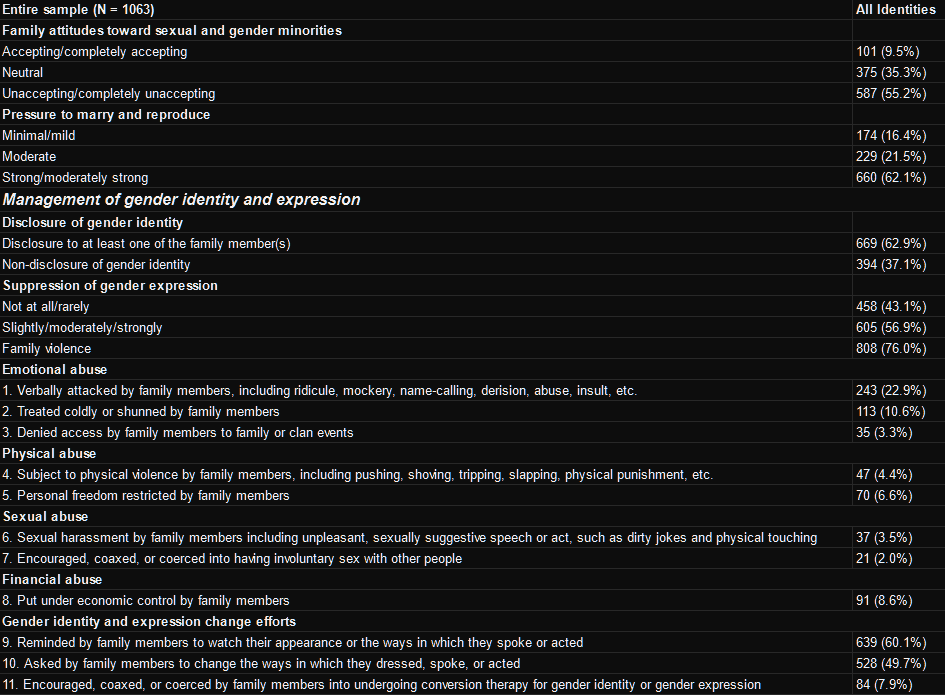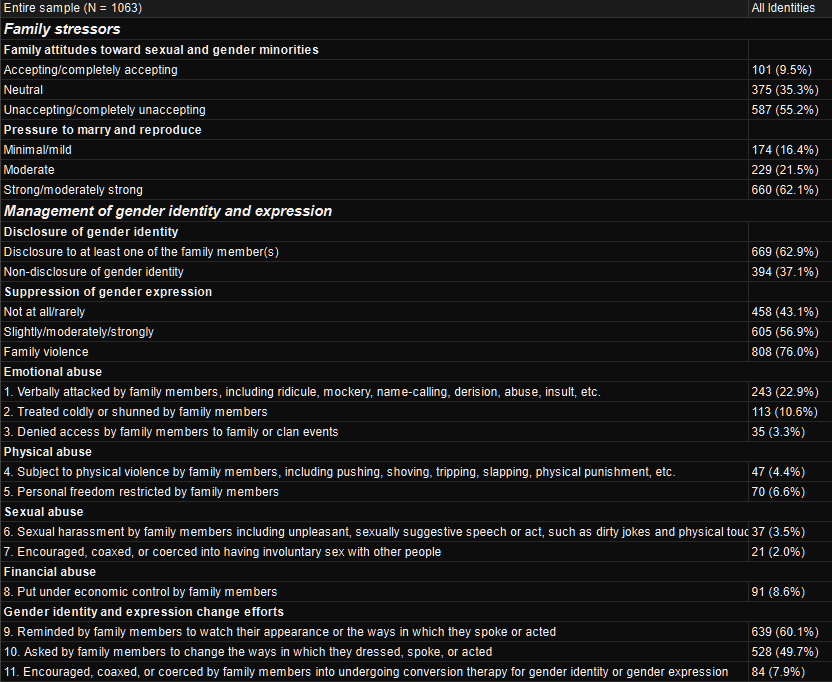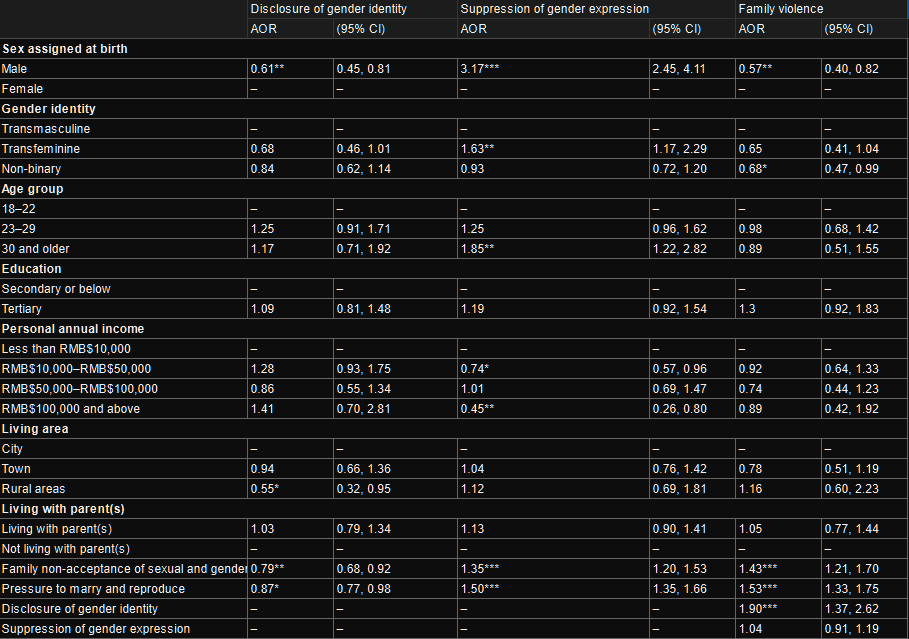CW: Discussion of transphobia, family violence
I'd like to point out that these rates seem unfortunately common across the globe, I would say these are fairly standard issues. I do like this paper, as they are very detailed and have clearly looked at western papers and filled in some gaps. I have edited the tables to only include the overall statistics to save space, but the paper does break things down by transfem, transmasc, and nonbinary, I wholly recommend viewing the whole thing.
TABLE 1. Demographic characteristics of the participants (N = 1063).

TABLE 2. Gender identity differences in family stressors, the management of gender identity and expression, and family violence.

TABLE 3. Association between family stressors, the management of gender identity and expression, and family violence.

Interpretation of Table 3:
Logistic regression was conducted to examine the associations of family stressors and the management of gender identity and expression with family violence. Family non-acceptance of sexual and gender minorities (AOR = 1.43, 95% CI = 1.21, 1.70) and family pressure to marry and reproduce (AOR = 1.53, 95% CI = 1.33, 1.75) were positively associated with higher levels of family violence. Moreover, disclosure of gender identity was positively associated with family violence (AOR = 1.90, 95% CI = 1.37, 2.62). Specifically, TNB individuals who disclosed their gender identity to their family members were 1.90 times more likely to experience family violence compared to those who did not disclose their gender identity. However, the association between gender expression suppression and family violence was not significant (AOR = 1.04, 95% CI = 0.91, 1.19). Furthermore, individuals assigned male at birth were less likely to experience family violence than those assigned female at birth (AOR = 0.57, 95% CI = 0.40, 0.82). Table 3 presents the regression of family stressors and the management of gender identity and expression on family violence.
Conclusion by authors:
While the family is often considered a shelter, our study reveals that for TNB individuals in China, it can unfortunately become an arena where rejection and victimization occur. The findings shed light on the harsh reality that TNB individuals face within their families, with a striking three-quarters of participants reporting experiences of family violence based on their gender identity and/or expression. These prevalence rates exceed those observed in Western contexts, highlighting the influence of rigid gender norms and family values on the familial experiences of TNB individuals in the Chinese context. Additionally, the study uncovers gender identity differences in experiences of family stressors and violence. The findings also establish a clear link between family stressors, the management of gender identity and expression, and the occurrence of family violence. Taken together, the results emphasize the pressing need for legal, institutional, and social measures to promote inclusive family violence prevention and responses for TNB individuals. There should also be a greater consideration of Chinese cultural factors when designing family violence interventions within health and social service settings.

Yeah, very bizarre passage. Some of the researchers are from Hong Kong. But they do have multi-generational households and clan-family structures, so I can understand some leeway on this.
That's the main difference, but the "family focus" is honestly still a thing. The multi-generational thing is starting to come back due to the economy, though. I think you're right in this is what they mean.